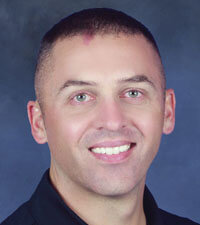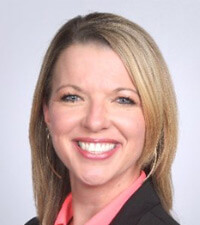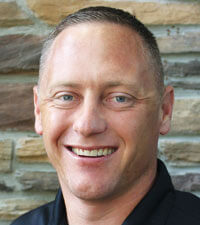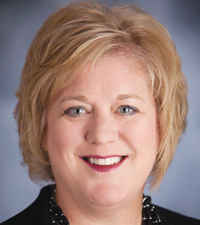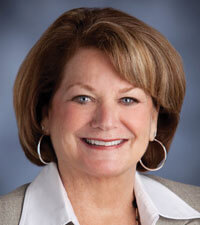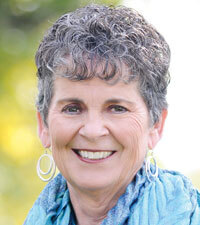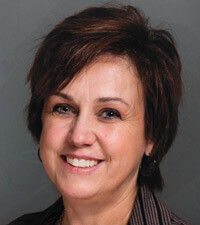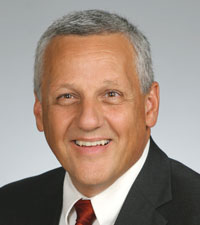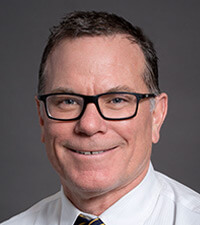Unplanned Life Changes in Lincoln, NE – 2018
You may or may not be well-versed in the wisdom bestowed upon us by Greek philosopher Heraclitus, but he is best known for his doctrine of change being central to the universe. Through various translations, what you likely do recognize is the most popular paraphrased version, “The only thing that is constant is change.”
That’s life, folks. We’re all familiar.
Change can be positive, negative or neutral – and it can start out as one but end up shifting to another as time goes on. Sometimes change is intentional and as such, planned for in advance. You’re prepared for what’s ahead. Perhaps you’re excited, hopeful, or you begrudgingly know it’s what must be done and have made the decision to address whatever it is proactively. You may or may not be ready, but you’re prepared nonetheless.
Other times, something happens unexpectedly and changes in your life happen as a result. Although in this scenario there are going to be things out of your control, what you can control is how you react. Is it really possible to plan for the unplanned changes in life? Absolutely. By familiarizing yourself with the resources that are available, especially those at the local level here in your community, you’ll be doing your future self a huge favor. Furthermore, taking certain precautionary actions will help immensely in the event of the relatively unexpected occurring.
You can choose to be empowered by getting things in place that will allow your future self to act in a way that you would regardless of how a situation comes about. This way, at the very least, you’ll be able to confidently approach the first step you’ll take moving forward when you’re facing change and uncertainty ahead.
This is especially true for changes that you can anticipate to some extent, such as those that come along with the aging process.
“As we all know, life can change very quickly and unexpectedly,” says Kyle Johnson with Care Consultants for the Aging. “In my line of work, lack of preparation is something I see often and it can present a number of problems for people depending on the circumstances.
As we all age, life just becomes more difficult. People who are more understanding and aware of their personal care changes are the ones who seem to do best when sudden changes occur.
With our services at Care Consultants for the Aging, we are set up to help seniors who have gone through life-changing events such as sudden loss of independence due to a medical incident, loss of a spouse or just the reality of life becoming too difficult to do alone.
I would advise any senior who lives alone to make sure they have plans in place for sudden life-changing events. The biggest one is having a person who comes to check in on them from time to time. It’s okay to ask for help. There are many professionals in the industry who have solutions to help keep seniors independent for as long as possible. For example, with the assistance of a private caregiver in the home, it helps a person retain the highest level of independence possible. Don’t resist the help when sudden changes do occur.
Please visit our website at OmahaHandbook.com to view our ElderCare Resource Handbook. This is a great tool available for free to help you find resources in your area.”
In agreement on the importance of preparing as much as possible for sudden life-changing events, particularly for seniors, Summer Sargent with Pemberly Place states, “When we receive a call from a professional or loved one, it is often met with the inability for the individual in question to return home safely. Without proper preparation for next steps regarding living situations, this event causes stress, heartache, anxiety and an array of other emotions.
The cost for senior living can be expensive, but not having the right information or knowledge about care levels tends to be more stressful as it presents a challenging conversation for loved ones, caregivers, and the individual we are trying to assist. At Pemberly Place we create an opportunity for dialogue. We encourage families to tour our community, tour other communities, learn the community resources available to them before making decisions for next steps. Knowledge is always power.
It helps tremendously to know your personal financial situation. Do you know the difference between Medicaid and Medicare? Do you have long-term care insurance? What senior living communities have you toured and which of those do you prefer should you need to make a quick decision? Do your children or loved ones know your wishes regarding your personal care needs?
Avoid a crisis by preparing yourself for next steps should something happen to you. Gather information to suit your needs This is your life; prepare for it.”
Theron Ahlman with CarePatrol of Nebraska also notes, “At CarePatrol we deal with a lot of unplanned life changes that come from seniors having issues at home. The most common is when seniors end up in a rehabilitation facility and it’s deemed that they can no longer live at home due to safety reasons.
Seniors who are in this difficult situation are usually very upset as they just want to go home and aren’t exactly ready to take this step. During this emotional and jarring time, we are there to help them to understand that everything will work out, and we take immediate action to ensure it does. Although they weren’t planning to make the change, that’s where CarePatrol comes in, and we can really make this next step be as easy as possible for the family.
By working with seniors and their families hand in hand through the process, we develop a relationship based on trust and the mutual understanding that we are truly here for them as an advocate and have their best interest at heart and in mind throughout the transition. We first meet with the family to learn as much about the senior and what care is needed. Then, based on that discussion, we’ll recommend the best community options, schedule the tours and personally accompany the family on them. We will even pick up and drive whoever wants to go on the tour, which makes it possible for many of those needing to find a place to have the opportunity to go look at where they will be living prior to moving there. We can work as fast as needed, having helped families find the best option for them within hours of getting a phone call. Although everyone involved prefers to have more time, unfortunately it doesn’t always work out like that. When emergency situations arise, we are the best call for the family to make as a starting point.
Similarly, we can also help recommend many different services or companies that can help with selling a home, getting a bridge loan in place while a house is selling, creating documentation and completing paperwork, and with getting medical equipment purchases lined up. Or, it may be something that doesn’t require a move, such as a caregiver having an issue arise and needing a break. In those situations, we can look at respite care, or recommend the right in-home care company to help fill the gaps or come on in place of that person.
At CarePatrol, we always encourage families and seniors to meet with us before an emergency situation happens. That way everyone is more prepared when the time comes to take the next step. A lot of seniors also learn that taking the next step isn’t as bad as what they had been thinking in their mind, and do make the step before they put themselves through a very challenging time. If you know of someone who could benefit from visiting with us, please give us a call at (402) 904-8296, and remember, our services are always 100% free to those we help!”
For those in their golden years, with respect to the most common scenarios that would result in unplanned changes that have already been mentioned, the outcome will vary depending on the individual and the circumstances. This might involve short-stay rehabilitation, extended rehabilitation, in-home care and possibly home modifications, or a move to a smaller home, to live with a family member or to be nearby your support system, or to an independent, assisted, or skilled care residence.
To that end, Amy Fish with Lancaster Rehabilitation Center affirms, “We help those who are experiencing unplanned life changes all the time at Lancaster Rehabilitation Center. Our short-term rehabilitation unit is dedicated to caring for patients who have experienced both planned and unplanned hip and knee replacement procedures, unexpected cardiac surgery, and/or a decline in overall health requiring the need for our clinical and therapy services in order to get back on their feet. We are also there for those residents and families looking for secure memory support services or those in need of traditional long-term care services.”
She goes on to offer insight based on her experience, stating, “The most difficult aspect of an unplanned life change is the fact that it is unplanned. As such, my advice is to start the conversation early before an unexpected event occurs.
Knowing that the unexpected could always happen, it’s important to take the time to plan for what might be needed in the future. Often, when something unexpected happens, we’ll find that those now making decisions on behalf of their loved ones are unaware of things like insurance policies, care directives, or how to manage their affairs in the interim of their recovery. Adult children should take the time to engage in conversation regarding the future care needs of their parents, and to research the many options for care in advance together. Know and understand what is important regarding their preferences for social, spiritual, and clinical care. This will help elevate some of the anxiety and stress that occurs when managing the unexpected.”
Regarding our local resources, she emphasizes, “The Lincoln community is resource rich! Use these many experts to your advantage. Call upon trusted physicians, outreach programs, and the many healthcare facilities to help guide your decision making.
There are many resources and checklists available on practically every subject you might have a question about as it relates to services for seniors. The guiding information I would share with seniors and their adult children is to identify and define their priorities when evaluating skilled care nursing settings. Beyond the checklists that Medicare or others may provide, tour the facilities in advance, and listen to your gut. Evaluate the environment, gather a better understanding of the services provided, and then decide if it fits your personal preference. I always suggest to adult children to know in advance the insurance coverage benefits their parents may be participating in, and how to access those benefits should they become incapacitated. Know and understand the limitations based on the provider’s participation in programs such as Medicaid, VA, and/or Medicare. That information will help narrow your options and guide your decision-making.
When something unexpected occurs, rely on the expertise of others to help guide the decision-making process. Don’t be afraid to ask plenty of questions in order to ensure you have all the facts. Some healthcare providers have limitations on Medicare, Medicaid, VA, or insurance policy participation. You always want to ensure you’re taking full advantage of the benefits or programs you qualify for. And remember to take it one step at a time. Let others help in whatever way they can. Focus on the most critical decisions first, knowing that there is plenty of help available.
With respect to our specific areas of expertise, the team at Lancaster Rehabilitation feels it’s important to serve as a resource to those in need of skilled care services and other outpatient needs. Community members are welcome to call us anytime with questions. We’re glad to help!”
To meet the growing need for the aging population here in our community, there are an abundance of resources, with new options being introduced all the time. Relatively new to Lincoln are Old Cheney Rehabilitation, Visiting Angels, Avalon Hospice, The Woodlands at Hillcrest, and more to come.
Barb Tyler with The Woodlands at Hillcrest reports, “The Woodlands at Hillcrest has just opened, accepting our first residents now! For the past few months, we have been explaining our mission to families, which is special programming for both assisted living and memory care residents, as well as providing safety and security, healthcare, and wonderful amenities within The Woodlands’ community. Now, I am happy to say we have become a more immediate service, allowing the potential resident to tour along with their families since the construction area(s) have been largely diminished.”
On the topic of discussion, unplanned life changes, Tyler offers the following advice:
“Our team of professionals at The Woodlands typically sees many families who have been blindsided with abrupt health and life changes due to falls, the death of a spouse, or various ailments.
At minimum, you must educate yourself and become aware of what services are out there. If an unexpected event occurs that warrants a move, knowing which community is best equipped to deal with a loved one’s needs going forward takes a great deal of pressure off. And if the person has actually visited any of the communities to check out the safety and security, programming, transportation availability, and staffing/care availability, such as nurses around the clock or two-person assists, they can be more confident in dealing with unexpected events.
Having worked in all areas of senior healthcare for 15 years and having worked in the housing market for over 26 years as a Nebraska-licensed real estate agent, I am able to explain the different options available that are in the Lincoln and surrounding areas – and more than happy to do so.”
She concludes, “Change can be incredibly difficult for anyone. And change without someone who has been a life partner for many years makes it even more difficult. Leaving a home that has been a person’s ‘nest’ for many years is another obstacle. However, once you gain the trust of a family and/or potential resident, and you explain that they have choices in lifestyle, floor plans, and location within a community, they often feel that their opinion is valued and that they matter.
Explaining to a family that there is not a long-term commitment helps as well; knowing that they are able to reevaluate their choices down the line gives them comfort and freedom. However, after moving to a community and finding that they now enjoy a carefree lifestyle, and are able to do much if not all of what they did before and perhaps even more, it results in very few second thoughts and/or move outs!”
With an unexpected event such as an injury, illness, or death of a loved one that requires a senior to move, it can be a truly tough time. For that person, it can already feel like they are losing so much, so if there’s not been any previous downsizing to prepare it’s not exactly the best time to start getting rid of a bunch of stuff they’ve gathered over a lifetime.
Instead, consider utilizing a storage facility for the time being so that it’s more of a gradual process and there’s not such a sense of urgency in making those decisions, which could exacerbate an already stressful situation.
This could also hold true for a number of other unexpected events that would in some instances require a move, such as military deployment, displacement due to an emergency situation, separation or divorce, and so on.
Knowing your treasured belongings are safe and secure at least offers a little peace of mind in times of uncertainty and change.
All told, when responding to an unexpected event, it’s important for everyone involved to get on the same page, coordinating your efforts in dealing with whatever comes next. Since that is easier said than done, it is helpful to have an experienced professional to guide the process and help you make decisions together.
“No one is capable of predicting what happens in the immediate future and when a medical crisis hits, most often panic is the first response,” says Mary Ann Stallings with Bridge to Better Living. “Everyone in the family wants the best for their loved one, but they may all want a different ‘best.’ There may be multiple calls from well-intentioned people and even the communities become confused as to who belongs to whom.
It is best to contact Bridge to Better Living and have a personal liaison to take the stress and confusion from the situation. We transition the loved one from Point A to Point B in whatever time frame is necessary. By applying our knowledge and resources, we are always thinking ahead and putting the puzzle pieces together. Bridge to Better Living encourages being proactive and contacting us to look at possibilities before a crisis. Establishing a plan for the future with an expert helps ‘myth-bust’ views from potentially unreliable sources and aids in envisioning appropriate communities.
Bridge to Better Living is capable of handling many types of situations when a move is required due to a medical event. We have access to a number of resources and maintain current knowledge of availability, services and community contacts. Bridge to Better Living first assesses the client, their needs, wants and lifestyle. After considering the possibilities, we reach out to appropriate communities. The family is always informed and it is not unusual to schedule a tour or placement in minimal time. Bridge to Better Living follows our clients through not only the research step, but the move-in. Should life changes necessitate another move after several years, we are already involved with the family and are able to quickly navigate the process.
Whatever the case may be, please know Bridge to Better Living is here for you. If you are even beginning to ponder the ‘what ifs,’ give us a call. We look forward to having a conversation with you. Bridge to Better Living’s mission is Placement with Passion. It may take 5 years or 5 days, but regardless, we want our clients to be empowered to make informed decisions when choosing a Retirement Living option, whether it is Independent, Assisted, Memory Assisted or Long-Term Care. Our services are completely free to the client. We care.”
In closing, she emphasizes, “Plan ahead. Don’t hesitate to take the first step. Use a reliable service with a good reputation, one such as Bridge to Better Living.”
Just as with these other occurrences that change the course of our lives moving forward, death, while something that “comes to us all,” can come at any time and manner. Our time in this world is limited, so we must be as intentional as possible in making the most of it. Loss, and how one person’s life will change as a result of being touched by another, is all a part of that precious gift of life.
“It almost goes without saying that death is one of the biggest unplanned life changes we as humans face,” says Jodi Freeman with Roper & Sons Funeral Care. “Of course, we all know that death is certain at some point – but we are usually not very well prepared for that eventuality.
One of the best ways to address the ‘unplanned change’ of the eventuality of death is to plan for it. That may seem like a bit of an oxymoron, but just as you plan for your education, your wedding, your family’s financial security, and retirement, you should also plan for your end of life living, and for your eventual death. Have your end of life health care wishes in place – in writing and reviewed by your attorney. Name a Power of Attorney for healthcare and for finances, have a will and estate plan in place, and plan for (and preferably fund) your funeral. All of these things save your loved ones time, money, and emotional strain during the first few days following your death.
Most people in their 40s and 50s are beginning to think about retirement – and many in their 30s are even starting to plan ahead. One big piece of those plans should be to have your funeral arrangements in place, and a plan for pre-paying the expenses. At Roper & Sons, our Family Service Counselors are well trained to help you begin to put those plans in place and to arrange your payment options.
Oftentimes, families are confronted with the question of how their loved one wanted to be remembered, particularly when death is unexpected. One thing that can help address some of the loss and confusion is to plan ahead.
While many people think of a funeral home being available to assist only at the time of death, in reality, planning ahead saves everyone a lot of time, energy and resources. If you are interested in learning more about planning for your final wishes, contact a Family Service Counselor at the funeral home.”
Freeman also notes, “Death is so often a shock to our system, even when it is anticipated, as it can be with age or illness. Everyone reacts differently when faced with the death of a loved one. Some people are all business, figuratively putting their heads down and planning the details of a funeral seemingly without emotion, only to break down later. Others are almost so emotional that planning feels impossible.
Our funeral directors and other staff are trained to assist everyone, regardless of their emotional state. We are called upon to be counselors, ministers, event planners, and a compassionate friend in time of need.
We also offer a grief program to help loved ones learn their ‘new normal’ in life. Our program meets on Sunday afternoons and includes two different group sessions with grief counselors as well as art therapy once a month. We also have plans in place to help with some life skills such as cooking for one, laundry, and even financial tasks like balancing a checkbook if necessary. You can learn more about our grief program on our website, including upcoming sessions, at roperandsons.com, under Upcoming Workshops.”
Bryan Block with Butherus, Maser & Love Funeral Home is quick to point out, “There is a difference between an unplanned life change and an unexpected life change.
From an early age, we all know that we will face end of life issues one day. Fortunately, many people make plans to address these expected challenges rather than have their family be caught unprepared.
The indecision and regrets are the things I have found to be the most troubling for people going through the planning of a funeral when there were no prearrangements. They often find themselves asking ‘Is that what they wanted?’ or they remember two weeks later, ‘Oh, they would have loved to have that song at the service.” Or, they end up with hurt feelings among family members because there is no agreement about some aspect of the service. It is so much easier to look at a file and be able to tell the family, ‘This is what your loved one selected.’
Someone once told me ‘You just don’t know what you don’t know.’ The best thing you can do with funeral planning or any other challenging life event is to be well educated so you make well-informed decisions that are most fitting for you and your family.”
For those facing a health condition that is terminal, hospice care can be incredibly beneficial. Due to the unpredictable nature of terminal illness, it is something that can be expediently set up, with a very small window of time necessary to get a support system in place. That being the case, as a result of a devastating unplanned diagnosis, it’s the best possible plan to have moving forward.
“We feel everyone with a terminal illness will benefit from hospice,” says Dr. Jeffrey Marple with Avalon Hospice. “At Avalon Hospice, we help patients cope with illness, death and dying. Earlier admission is crucial for comfort and symptom management as well and psychosocial and spiritual support.
Hearing you have a terminal illness is devastating enough. We as a team provide comfort and assistance with the grieving process for the patient as well as the family. We focus on what the patient’s goal is for what he or she sees the end of life journey being like. Many people fear dying due to fear of the unknown. What is going to happen next? With a team composed of nurses, a social worker, and a chaplain, we can each help our patients and their families process all of these fears in different ways.
To best meet the needs of our patients and their families, we take a multidisciplinary approach to providing hospice care. Our nurse is available 24 hours a day. I am in constant contact with my team; they keep me well informed and if they feel I need to see a patient, I absolutely will. We are all committed to providing unwavering support as a team.”
He goes on to emphasize, “Enjoy today because there is no guarantee for tomorrow. Being diagnosed with a terminal illness decreases that patient’s timeline of things he or she wanted to get done in this life. So do what you want to do today? Don’t wait. Make memories that will live on with your loved ones after your passing.
If you have questions regarding what hospice care entails and what we have to offer, call us. Never hesitate to become more informed and educated on what hospice is and all that it can offer you. Every day is an opportunity to learn and grow, even in the midst of a terminal illness.”
Health issues can present themselves at any time, young or old. You might recover or continue on with life without any or minimal medical intervention or it might be a more severe case that will require ongoing attention from that point forward. It’s truly impossible to know when something will happen that compromises your health to any degree. The most common plan for the unplanned in this case would include 911, emergency room, urgent care, or contacting your primary care physician in order of the seriousness of the condition.
That being said, there’s a myriad of other health-related unplanned occurrences that can be easily addressed otherwise.
For instance, there are many life changes that can impact your hearing. “You don’t have to be elderly to begin noticing a hearing loss,” states Leslie Frank with Nebraska Hearing Center. “We have several clients who have hearing loss due to prolonged exposure to loud noises. There are a number of medical conditions that may lead to hearing impairment as well.
At Nebraska Hearing Center we encourage preventive care and urge everyone to have their hearing tested annually so that changes can be addressed right away. We believe that knowing where your hearing stands is very important and that is why we offer complimentary hearing evaluations.
For seniors especially, an unfortunate medical diagnosis or a spouses passing are just a couple of examples of events that require being able to hear and understand what is happening. Those same events may even have you considering moving into a senior living community. Transitioning from your quiet home to an active community environment, with for example a busy dining area, can make it hard to hear conversations. Our goal at Nebraska Hearing Center is to make sure you are hearing your best for whatever type of situation or lifestyle you may have. When meeting with my patients, we always discuss what their expectations are for their hearing aids. My goal is to make sure they are hearing their best at all times, which is especially important in challenging times.
We have many different hearing aid styles and price points as well as financing available, so there is no better time to call and schedule your appointment at one of our three locations in Lincoln, Beatrice, or Seward. Call Nebraska Hearing Center at (402) 486-3737 and we would be happy to answer any questions you may have and set up your free consultation.”
All throughout life, a person will face life-changing events, some expected and others unexpected. Later in life especially, there are distinct changes in both categories. Hope for the best, plan for the worst, and be mindful of the professionals who can help you, high points and low points alike. There’s little as valuable as having a strong support network to call on when needed, especially in dealing with life’s unplanned changes.


